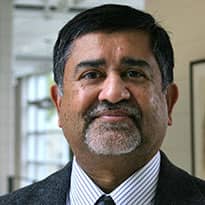It is always the political season in these United States of America. Not a week goes by without some flyer in the mailbox reminding us to vote for this candidate or the other; not a day goes by without about a dozen emails, purportedly from national leaders, urging us to take action on something or the other and "Oh, by the way, would you please send your $20, $50, $100, or whatever number of dollars to the campaign?" The vulgarly large campaign funds needed to win the presidency, a senate seat, or even the lowly state representatives' office has made American politics beholden to special interests, and we see how dangerously the nation is hobbled by this corrupt system.
And if the polls show that a candidate is trailing, then it is time to take the worst of hate and divisive issues out of the closet and give them television time so that the "base" gets "energized." Republicans, especially, have thrived in staking out their "conservative" territory and will push the envelope as far as it will go to get the die-hards to get all hot under their collars and turn up at the polling station in large numbers. Sure, the Democrats have their hot-button issues too, but when it comes to race, religion, and ethnicity, some Republican Party candidates, despite claims to the contrary, pander to base instincts.
So it was that last week the Republican gubernatorial candidate, and Kentucky State Senate President, David Williams, running to unseat the Democratic Governor, Steve Beshear, who is seeking a second term as governor of Kentucky, claimed that Beshear's "participation" in a Hindu groundbreaking ceremony, or bhumi puja, to inaugurate a new manufacturing facility in Elizabethtown was not kosher, or well, Christian. The governor, who had traveled to India, and marketed Kentucky as a friendly state where Indian companies could invest, had enticed FlexFilm, a company that manufactures a wide range of plastic film packaging products, to set up shop in Elizabethtown. The $180 million to be invested by the company is slated to bring 250 jobs to the state.
However, for a candidate trailing by a two-to-one margin in the polls, the attendance at the ground-breaking ceremony was red meat to throw in the political waters to attract religious fundamentalist sharks. What the governor did was not "in line with what a governor of the Commonwealth of Kentucky ought to be doing," Mr. Williams announced to the press, and claimed that the governor's actions were tantamount to "idolatry." Williams said that as a Christian he would not participate in Jewish, Muslim, or Hindu prayers, and hoped Hindus would open their eyes and "receive Jesus Christ as their personal savior." Of course, ignorant about religious matters and spiritual quests of the peoples of the world, Mr. Williams blustered about Hindus being "idolaters" and "polytheistic." Governor Beshear had "climbed down into a pit," "sat cross-legged," and wore "a red dot on his forehead," Mr. Williams accused—all signifying that the governor had given up Christianity or gone cuckoo!
If only Mr. Williams was willing to read and to listen, he would have been informed about the nature of Hindu worship and belief. Hindus are not idolaters, and the worship of a deity in the form of a "murti" is not object worship as much as acknowledging the fact that it is easier for human beings to worship God with a form (Saguna Brahman), than formless (Nirguna Brahman). As the 11th-century Arab traveler Al-Biruni intelligently noted, Hindus believe that God "is one, eternal, without beginning and end, acting by free-will, almighty, all-wise, living, giving life, ruling, preserving." Therefore the Hindu American Foundation (HAF) said in its press release that Mr. Williams had used intemperate and ignorant rhetoric that was not just an affront to Hindus but also was bigoted. Mr. Williams was given a chance to change his mind and to apologize to Hindu Americans, but instead, in a conversation with HAF's Managing Director, he said Beshear's actions were "in direct opposition to his own expressed Christian faith which recognizes but one God."
However, the combination of ignorance and intolerance has not always been a losing formula in politics, for if it were, it would not be used so often. American television advertisements have contained some of the most divisive messages, personal attacks, and downright falsehoods, in campaigns for the presidency and on downward. As media scholars note, political party operatives have indeed mastered the art of such deceit. Mr. Williams lost the gubernatorial race, but it was with a narrower margin than before he raked up the "he is with the heathens" issue. Before the elections, Governor Beshear had a two-to-one lead, and he won by a 56 to 35 margin, showing that Williams did indeed manage to pander to a minority.





